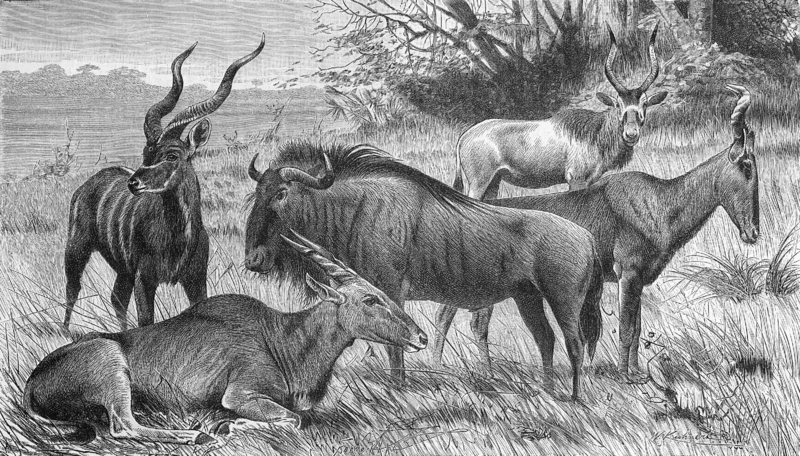|
| 질의: tragelaphus | 결과: 59번째/123 | |
white antelope (Addax nasomaculatus), greater kudu (Tragelaphus strepsiceros), red hartebeest (Alcelaphus buselaphus caama), common eland (Taurotragus oryx), blue wildebeest (Connochaetes taurinus)
| 제목: | white antelope (Addax nasomaculatus), greater kudu (Tragelaphus strepsiceros), red hartebeest (Alcelaphus buselaphus caama), common eland (Taurotragus oryx), blue wildebeest (Connochaetes taurinus)
| | 올린이: | Wiki Photos (---@---.---)
| |

| 해상도: 2440x1391
파일크기: 3251057 Bytes
등록시간: 2017:04:08 20:52:26
|
Svenska: Antiloper
English: Antilopes
6. Mendesantilop, Addax nasomaculatus. (top right) = white antelope (Addax nasomaculatus)
7. Kudu, Strepsiceros kudu, Tragelaphus strepsiceros. (top left) = greater kudu (Tragelaphus strepsiceros)
8. Kama, Alcelaphus caama. (bottom right) = red hartebeest (Alcelaphus buselaphus caama)
9. Eland, Orea canna, Taurotragus oryx. (bottom left) = common eland (Taurotragus oryx)
10. En gnu-art, Connochaetes taurinus. (middle) = blue wildebeest (Connochaetes taurinus)
Date 1904
Source Nordisk familjebok (1904), vol.1, Antiloper http://runeberg.org/nfba/0633.html
Author Nordisk familjebok
Source: https://commons.wikimedia.org/wiki/File:Antiloper_II,_Nordisk_familjebok.png
The addax (Addax nasomaculatus), also known as the white antelope and the screwhorn antelope, is an antelope of the genus Addax and family Bovidae, that lives in the Sahara desert.
The greater kudu (Tragelaphus strepsiceros) is a woodland antelope found throughout eastern and southern Africa.
The red hartebeest (Alcelaphus buselaphus caama or Alcelaphus caama) is a species of even-toed ungulate in the family Bovidae found in Southern Africa. The red hartebeest is closely related to the tsessebe and the topi.
The common eland (Taurotragus oryx), also known as the southern eland or eland antelope, is a savannah and plains antelope found in East and Southern Africa. It is a species of the family Bovidae and genus Taurotragus.
The blue wildebeest (Connochaetes taurinus), also called the common wildebeest, white-bearded wildebeest or brindled gnu, is a large antelope and one of the two species of wildebeest. It is placed in the genus Connochaetes and family Bovidae and has a close taxonomic relationship with the black wildebeest. |
^o^
동물그림창고 똑똑전화 누리집
^o^
|
|